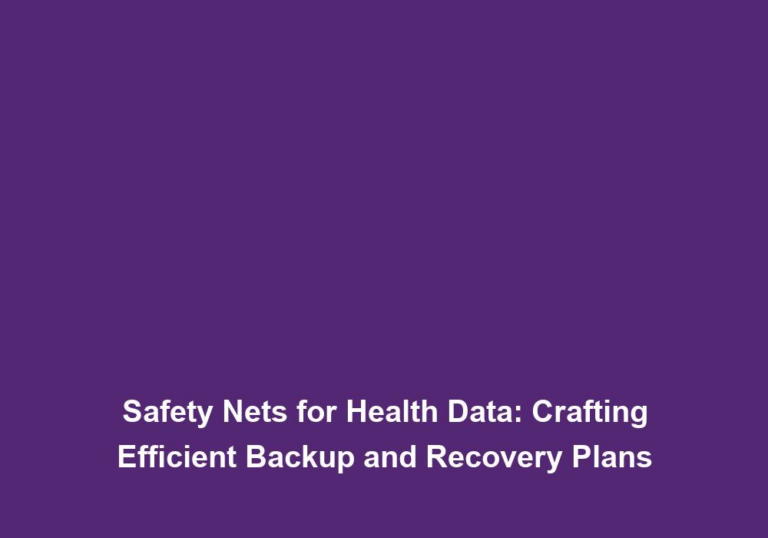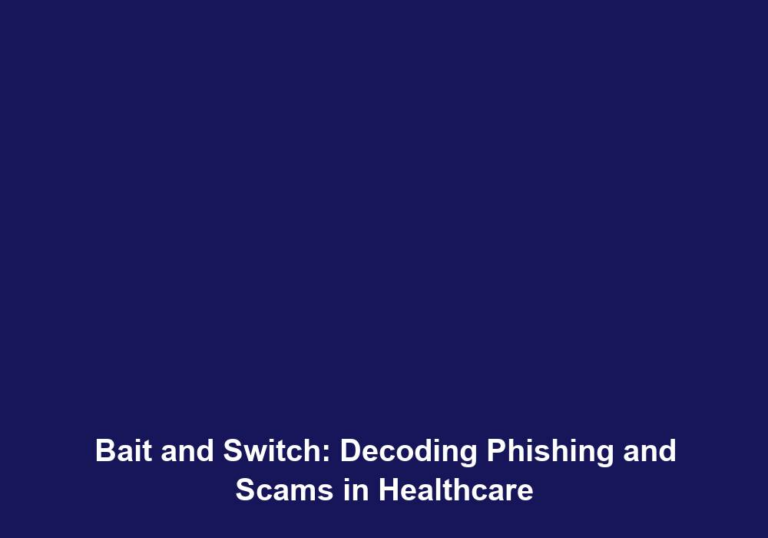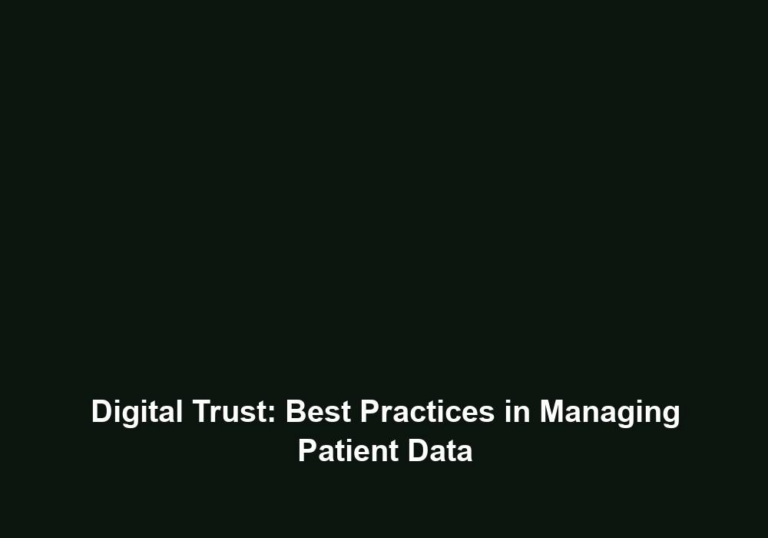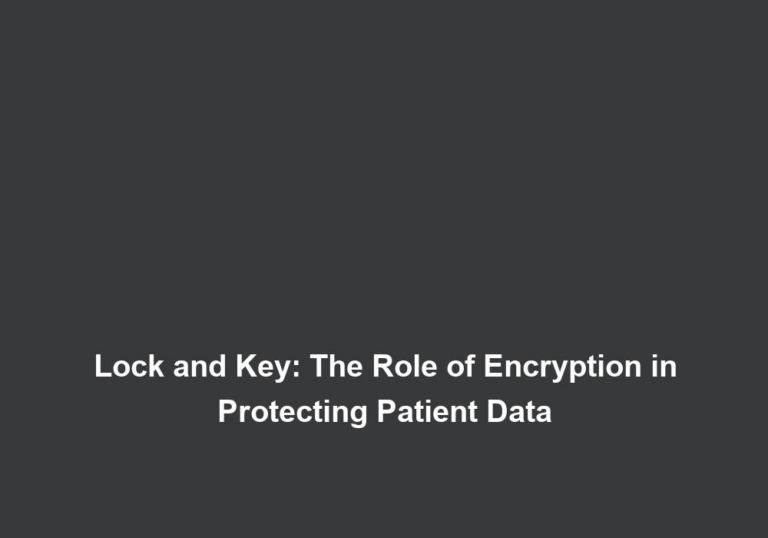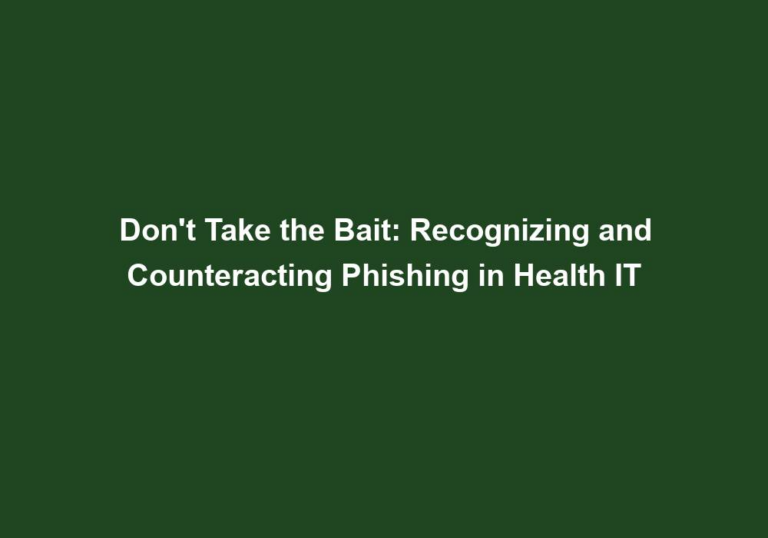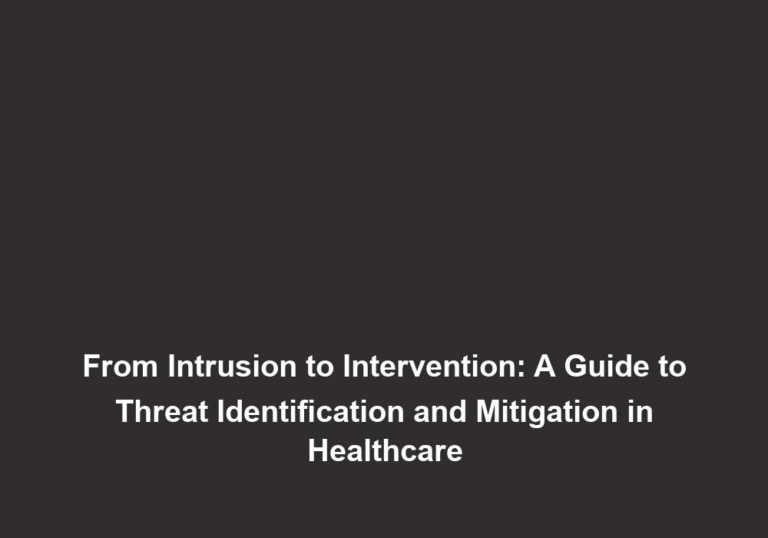Trust Through Compliance: Adhering to Data Protection Laws in Health Settings
In today’s evolving healthcare industry, the reliance on digital solutions has made data protection a critical concern. The sensitive nature of health-related information necessitates strict adherence to data protection laws in order to ensure trust between healthcare providers and patients. This article will delve into the importance of complying with data protection laws in health settings and explore some best practices for maintaining the privacy and security of patient information.
The Significance of Data Protection in Health Settings
Data protection in healthcare refers to the methods and measures taken to safeguard patients’ personal and medical information from unauthorized access, use, or disclosure. This information, often referred to as protected health information (PHI), includes details such as medical history, test results, diagnoses, and treatment plans.
Complying with data protection laws is crucial for several reasons:
-
Patient Trust: Adhering to data protection laws demonstrates a commitment to safeguarding patient privacy and instills trust in healthcare providers. Patients are more likely to share sensitive information and engage in open communication when they have confidence in the security of their data.
-
Legal Obligations: Healthcare providers are legally bound to protect patient information under various laws and regulations, such as the Health Insurance Portability and Accountability Act (HIPAA) in the United States. Failure to comply with these laws can result in severe penalties, including fines and legal action.
-
Preventing Data Breaches: Data breaches in healthcare settings can have significant consequences, both for patients and healthcare organizations. By implementing robust data protection measures, healthcare providers can minimize the risk of data breaches and the associated financial and reputational damage.
Key Data Protection Laws in Health Settings
Data protection laws vary across countries, but there are some common regulations that healthcare providers need to be aware of. Let’s explore a few notable ones:
1. Health Insurance Portability and Accountability Act (HIPAA)
HIPAA is a comprehensive federal law in the United States that protects patients’ health information. It sets standards for the electronic exchange, privacy, and security of PHI. HIPAA requires healthcare providers to implement administrative, physical, and technical safeguards to protect patient data.
2. General Data Protection Regulation (GDPR)
The GDPR is a regulation enforced in the European Union (EU) and the European Economic Area (EEA). It applies to any organization that processes the personal data of EU and EEA citizens, including healthcare providers. The GDPR grants individuals greater control over their personal data and imposes strict obligations on organizations to protect that information.
3. Personal Information Protection and Electronic Documents Act (PIPEDA)
PIPEDA is a Canadian federal law that governs the collection, use, and disclosure of personal information in the course of commercial activities. Healthcare providers in Canada must comply with PIPEDA when handling patient information.
Best Practices for Data Protection in Health Settings
To ensure compliance with data protection laws and maintain patient trust, healthcare providers should implement the following best practices:
1. Conduct a Data Privacy Impact Assessment (DPIA)
A DPIA is a systematic evaluation of the potential privacy risks associated with the processing of personal data. Healthcare providers should conduct DPIAs to identify and mitigate any privacy risks, ensuring that adequate safeguards are in place to protect patient information.
- Identify the types of personal data collected and processed in healthcare settings.
- Assess the potential privacy risks and develop strategies to mitigate them.
- Document the findings of the DPIA and implement the recommended safeguards.
2. Implement Strong Access Controls
Access controls play a vital role in protecting patient data. Healthcare providers should adopt robust authentication mechanisms, such as unique usernames and strong passwords, to ensure that only authorized individuals can access sensitive information. Two-factor authentication adds an extra layer of security and should be considered where possible.
- Implement unique usernames and strong passwords for all users.
- Consider implementing two-factor authentication for enhanced security.
- Regularly review and update access controls to revoke access for former employees or individuals who no longer require access.
3. Encrypt Data in Transit and at Rest
Encryption is crucial for protecting patient data from unauthorized access. Healthcare providers should implement encryption protocols for data transmitted over networks and stored on devices or servers. Encryption ensures that even if data is intercepted or stolen, it remains unreadable without the decryption key.
- Use secure protocols, such as HTTPS, for transmitting data over networks.
- Utilize encryption algorithms to protect data at rest, such as AES-256.
- Regularly update encryption protocols to stay ahead of emerging threats.
4. Train Staff on Data Protection Policies
Human error is one of the leading causes of data breaches in healthcare settings. Regular training sessions should be conducted to educate staff on data protection policies, proper handling of patient information, and the consequences of non-compliance. Staff members should be aware of their roles and responsibilities in maintaining data privacy.
- Provide comprehensive training on data protection policies during onboarding.
- Conduct regular refresher training sessions to reinforce best practices.
- Develop clear guidelines for reporting data breaches or potential security incidents.
5. Regularly Update and Patch Systems
Outdated software and systems are more vulnerable to cyber threats. Healthcare providers should establish protocols for regular system updates and patch management to address any known vulnerabilities promptly. This helps ensure that systems remain secure against emerging threats.
- Implement a system for monitoring software and hardware vulnerabilities.
- Establish a schedule for regular updates and patches.
- Conduct thorough testing after updates to ensure system integrity.
6. Perform Regular Security Audits
Regular security audits are essential to identify any weaknesses in a healthcare organization’s data protection practices. By conducting comprehensive audits, healthcare providers can proactively address vulnerabilities and implement necessary improvements to their security systems.
- Conduct internal or external audits to assess data protection measures.
- Identify vulnerabilities and develop remediation plans.
- Regularly review and update security policies and procedures in response to audit findings.
Conclusion
In the digital age, healthcare providers must prioritize data protection to maintain patient trust and comply with legal obligations. Adhering to data protection laws, such as HIPAA, GDPR, and PIPEDA, is crucial for safeguarding sensitive patient information. By implementing best practices, such as conducting DPIAs, implementing strong access controls, and regularly updating systems, healthcare providers can demonstrate their commitment to data privacy and maintain a secure environment for patients’ personal and medical information.


